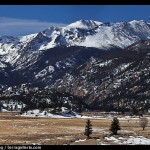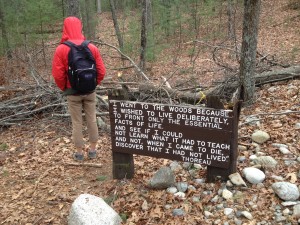As Christians, we have our work cut out for us. If we’re serious about being disciples of Jesus Christ, then we’ll diligently read and study the Bible not only to learn more about God, but to learn how to live. And as we do that, we discover that we have a pretty lofty set of examples to follow. Paul gives the example of perseverance in the face of open hostility, beatings, and prison. James offers instruction about both our words and our attitudes. The shepherd king David demonstrated a spiritual rawness and emotional openness unparalleled in Scripture. And of course Jesus himself gives a lifetime of examples for everything from teaching through stories to loving the most unloveable of people. But the hardest example to follow is the one that came at the worst possible moment in Jesus’ life.
And Jesus said, “Father, forgive them, for they know not what they do.”
Luke, a doctor and painstaking detailer not only of Jesus’ life but also the lives and ministries of the apostles following the resurrection, gives an account of the crucifixion that is surprisingly devoid of the details you might expect from a doctor. Most of Luke’s story, in fact (see Luke 23), seems to be focused on what was going on with other people: Simon the Cyrene, the crowds, the soldiers, the two criminals. All he really says about Jesus is, “they led him away… they crucified him… he breathed his last” [verses 26, 32, 46].
Maybe this scarcity of detail about the physical suffering Jesus endured allows Luke’s readers to be that much more taken with the words of Christ that he records—especially the words that give us the hardest example we will ever be asked to follow: “Father, forgive them, for they know not what they do.”
History tells us that crucifixion was a terrifying, torturous ordeal leading to a slow and agonizingly painful death. Some victims were lashed to the cross while others—like Jesus—were nailed through their wrists or palms. Sparing us these details, Luke simply says, “they crucified him.” And immediately he gives us Jesus’ words: “Father, forgive them, for they know not what they do.” As the hammers are coming down on the spikes, Jesus offers forgiveness to those holding the hammers. As the cross is being hoisted into its vertical position, Jesus asks His Father to forgive those lifting the wood.
While in the very process of being wronged, Jesus offers forgiveness.
That is an impossibly difficult example to follow. We are even tempted to excuse ourselves from following it because Jesus, after all, was God, and we’re not. But Jesus was also a man—the same man who only hours before had begged in blood-stained sweat for his heavenly Father to let him get around this hour. We have no excuse. We also have no power, except through the One who gave us the example.
Preemptive forgiveness. Forgiving before the one who hurt you apologizes. Forgiving when what you want most is for them to know they hurt you. Forgiving when they don’t even acknowledge that they hurt you, or they deny hurting you at all. Or, worse, when they say it’s your fault for being hurt. Forgiving when there is precious little hope for confession, let alone restoration and reconciliation. Forgiving even when you don’t feel forgiving, you don’t want to forgive, you’re not sure you can forgive. It’s impossible. [*See footnote and my first comment below.]
But it is most necessary, for only in preemptive forgiveness is there hope of something better even than restoration. Only in preemptive forgiveness is there hope for resurrection. New life. Re-creation.
Jesus’ agonized prayer—“Father, forgive them, for they know not what they do”—made possible not only his own resurrection, but also the resurrection of every believer. We can’t stop people from hurting us; we can’t make them confess or apologize or repent when they have hurt us. But we have the power to bring new life through forgiveness.
Father, forgive them.
*11/27/15—I made some small but important changes to this post after first publishing it, changing “forgive” to “offer forgiveness” in a couple places, and changing the statement from “Jesus forgives” to “Jesus asks His Father to forgive.” See my comment below for more on this.
 As I write, I am sitting in a hospital in Colorado Springs, waiting while my dad is prepped for surgery to replace a valve in his heart. We are two days into spring and in the middle of Holy Week.
As I write, I am sitting in a hospital in Colorado Springs, waiting while my dad is prepped for surgery to replace a valve in his heart. We are two days into spring and in the middle of Holy Week.

